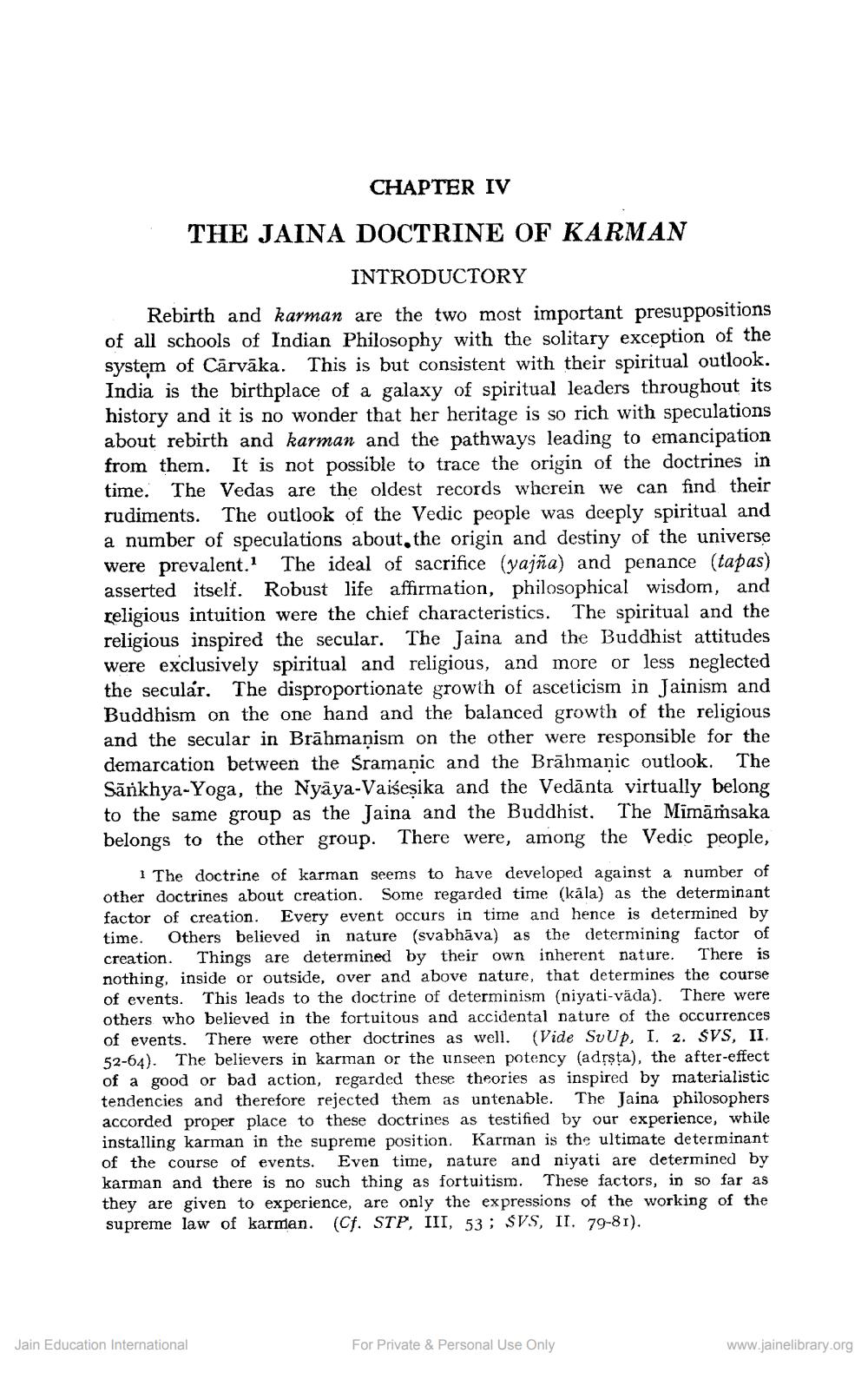________________
CHAPTER IV THE JAINA DOCTRINE OF KARMAN
INTRODUCTORY
Rebirth and karman are the two most important presuppositions of all schools of Indian Philosophy with the solitary exception of the system of Cārvāka. This is but consistent with their spiritual outlook. India is the birthplace of a galaxy of spiritual leaders throughout its history and it is no wonder that her heritage is so rich with speculations about rebirth and karman and the pathways leading to emancipation from them. It is not possible to trace the origin of the doctrines in time. The Vedas are the oldest records wherein we can find their rudiments. The outlook of the Vedic people was deeply spiritual and a number of speculations about the origin and destiny of the universe were prevalent. The ideal of sacrifice (yajña) and penance (tapas) asserted itself. Robust life affirmation, philosophical wisdom, and religious intuition were the chief characteristics. The spiritual and the religious inspired the secular. The Jaina and the Buddhist attitudes were exclusively spiritual and religious, and more or less neglected the secular. The disproportionate growth of asceticism in Jainism and Buddhism on the one hand and the balanced growth of the religious and the secular in Brāhmaṇism on the other were responsible for the demarcation between the śramanic and the Brāhmanic outlook. The Sānkhya-Yoga, the Nyāya-Vaišesika and the Vedānta virtually belong to the same group as the Jaina and the Buddhist, The Mimāṁsaka belongs to the other group. There were, among the Vedic people,
1 The doctrine of karman seems to have developed against a number of other doctrines about creation. Some regarded time (kāla) as the determinant factor of creation. Every event occurs in time and hence is determined by time. Others believed in nature (svabhāva) as the determining factor of creation. Things are determined by their own inherent nature. There is nothing, inside or outside, over and above nature, that determines the course of events. This leads to the doctrine of determinism (niyati-vada). There were others who believed in the fortuitous and accidental nature of the occurrences of events. There were other doctrines as well. (Vide SvUP, I. 2. SVS, II. 52-64). The believers in karman or the unseen potency (adrsta), the after-effect of a good or bad action, regarded these theories as inspired by materialistic tendencies and therefore rejected them as untenable. The Jaina philosophers accorded proper place to these doctrines as testified by our experience, while installing karman in the supreme position. Karman is the ultimate determinant of the course of events. Even time, nature and niyati are determined by karman and there is no such thing as fortuitism. These factors, in so far as they are given to experience, are only the expressions of the working of the supreme law of karman. (Cf. STP, III, 53 ; SVS, II. 79-81).
of bad earstion karman of the sits well. (Vid
Jain Education International
For Private & Personal Use Only
www.jainelibrary.org




